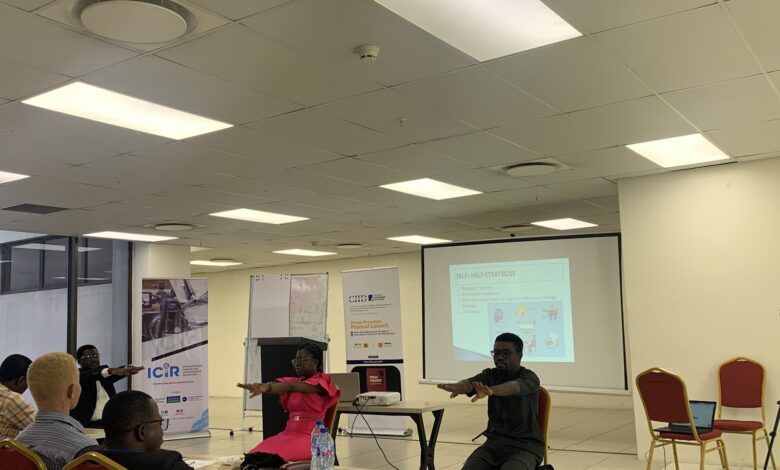CJID Proffers Legislative Measure To Protect Journalists In Nigeria
A draft bill which seeks to engage Nigeria’s lawmakers on the safety of journalists will consist of recommendations from media practitioners in the country.

A recently drafted legislative bill will aid in ensuring the safety of journalists in Nigeria, the Centre for Journalism Innovation and Development (CJID) has said.
The media think tank stated this at a journalists’ safety summit it held on Thursday, June 8, in Abuja, Nigeria’s Federal capital.
According to the organisation, the rise in attacks on journalists in the past year has necessitated the need for swift action that would tackle the issue.
“Our Press Attack Tracker has documented 610 attacks on journalists in Nigeria since 1985. 72 of those attacks happened in the past year,” Benedicta Akpede of the CJID said, noting that the actual number could possibly be more than has been recorded as some of the attacks are not documented.
The think tank explained that it organised the event as journalists in Nigeria continue to face significant challenges, including physical attacks, unlawful arrests, harassment, threats to life, Strategic Lawsuits Against Public Participation (SLAPPs), and even murder.
The summit which had journalists from different media houses in attendance consisted of experience-sharing sessions and robust discussions geared towards possible solutions.
During the event, the Chatham House rule was adopted to protect the identity of all those who contributed to the sessions.
Journalists shared experiences of threatening phone calls, multiple lawsuits, illegal arrests, torture, and even gun-to-head situations. They also shared some of the uncomfortable things they are currently living with due to the trauma brought on by these dangerous experiences, some of which an invited clinical psychologist suggested some coping mechanisms.
“My experience has shown me that nobody is coming from anywhere to save journalists, hence the need for journalists to form platforms to help themselves,” one of the journalists who shared a near-death experience said.
Others who spoke equally emphasised the need for stakeholders to take the safety of journalists seriously as they are the fourth arm of the government.
As the summit was in session, the CJID urged journalists to write down their recommendations for a bill that could ensure their safety by protecting them, as the presence of strong laws would dissuade perpetrators from harming journalists.
“One of the reasons we are having this conversation is that we need to hear from journalists what they recommend for their own safety,” Stephanie Adams-Douglas of the CJID said.
“We want to put together a draft bill that would be used to engage with the 10th assembly.”
Journalists in Nigeria are usually subject to numerous forms of violent attacks both online and offline, by individuals, non-state groups, and state groups, with the attacks peaking during election season. In the just concluded 2023 elections, for instance, HumAngle reported that several journalists were attacked.
This was also the case during the 2019 elections, when Chinedu Asadu, a journalist with Cable Newspapers was threatened by operatives of the Nigerian Police, forcing him to flee the polling unit he was assigned to cover.
Other journalists were also briefly detained by the Nigerian military as they covered the same elections.
The blatant attack on journalists in the country is so frequent that the latest index report from Reporters Without Borders rates Nigeria as an unsafe place for journalists. The report describes Nigeria as “one of West Africa’s most dangerous and difficult countries for journalists who are often monitored, attacked, and arbitrarily arrested.”
Previous governments, fully aware of the attacks (some of which are carried out by state forces) continue to promise that they are “committed” towards ending the violence against journalists but emerging developments suggest otherwise.
Support Our Journalism
There are millions of ordinary people affected by conflict in Africa whose stories are missing in the mainstream media. HumAngle is determined to tell those challenging and under-reported stories, hoping that the people impacted by these conflicts will find the safety and security they deserve.
To ensure that we continue to provide public service coverage, we have a small favour to ask you. We want you to be part of our journalistic endeavour by contributing a token to us.
Your donation will further promote a robust, free, and independent media.
Donate HereStay Closer To The Stories That Matter




